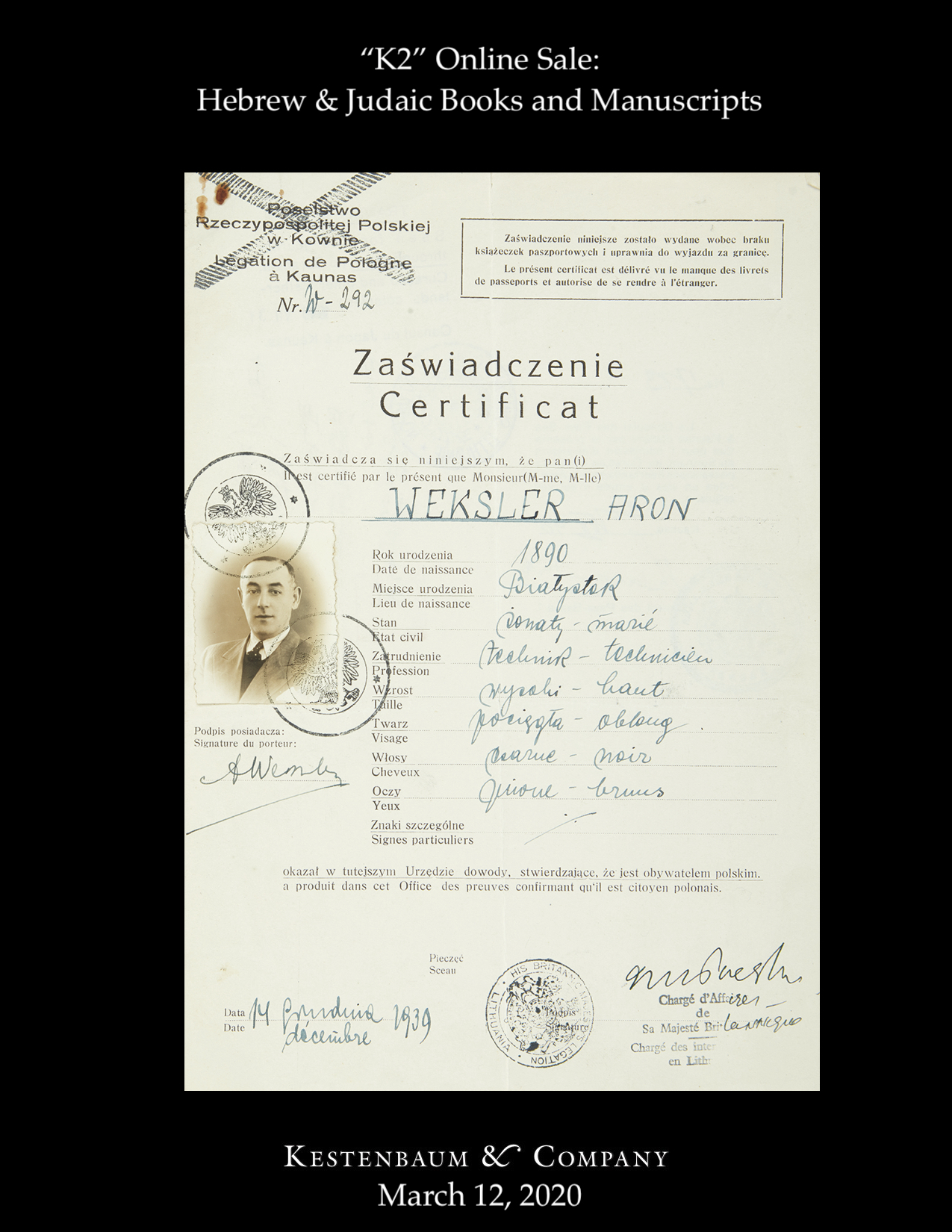Benjamin Dias Fernandez. Letters on the Evidences of Christianity.

AUCTION 88 |
Tuesday, March 17th,
2020 at 1:00pm
K2 Online Sale: Hebrew & Judaic Books and Manuscripts
Lot 4
(AMERICAN-JUDAICA).
Benjamin Dias Fernandez. Letters on the Evidences of Christianity.
Cincinnati: 1869
Est: $300 - $500
PRICE REALIZED $200
A mysterious Jewish work investigating and refuting the evidences for Christianity.
Written in 1740 by Grace Aguilar's great-grandfather, Benjamin Dias Fernandez, to a friend in Jamaica, the Letters first appeared in Solomon Henry Jackson’s monthly paper “The Jew.” Having received a copy of the full document, Isaac Leeser serialized the entire work in his Occident beginning in June 1843. Leeser writes that he only knew that the manuscript existed “before the commencement of the American Revolution,” but was unable to discover any information about the author, which was given as “Dea.” Writes Leeser: “About the name of Dea we are somewhat doubtful whether it be the correct appellation of the author, who was evidently a Portuguese Jew; since we know of no family of that name now in England. May it have been Dias? This seems to us to be more probable, still it is mere surmise.”
Leeser published the manuscript in book form in 1853, and explains how he came to know the author’s identity shortly after serializing it in his journal: “I received a letter from the late lamented Grace Aguilar informing me that the author’s name was Benjamin Dias, her maternal great-grandfather, a merchant of Portuguese origin, who came from Jamaica to England, where he spent the latter part of his life and where in fact these important Letters were written.”
Believing that the American free press was a blessing and offered an unparalleled opportunity, Leeser wrote “We owe it to ourselves to defend our religion; and it would be a shame if, with a free press at our command, we do not scatter light all over the land.”
This edition of the work comes after the death of Leeser and was connected with Isaac Mayer Wise and his Minhag America Reform movement, which saw itself as a rival to Leeser's Orthodox leanings.
